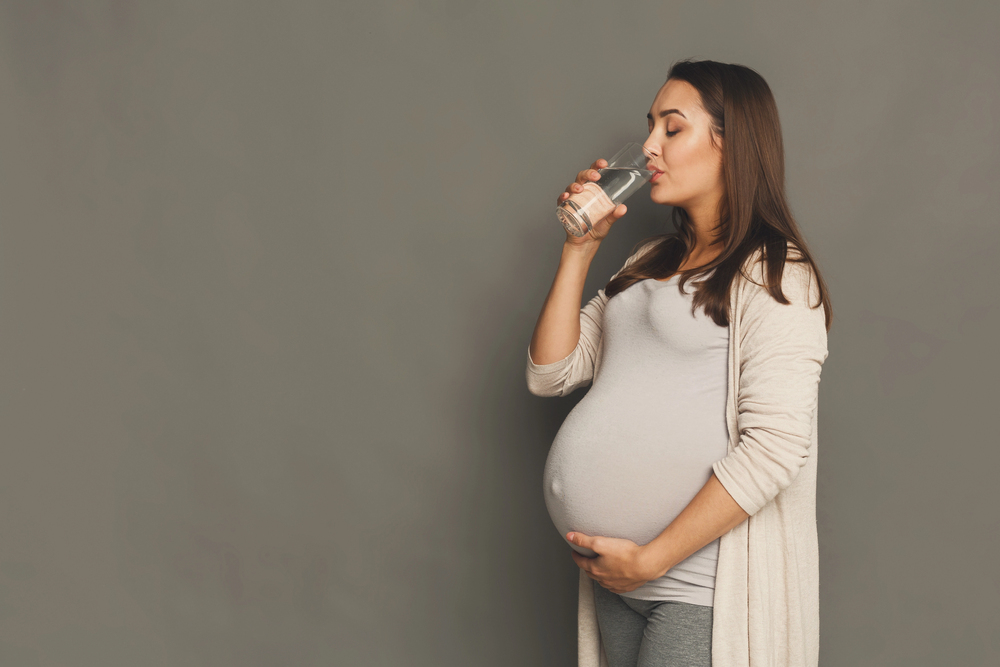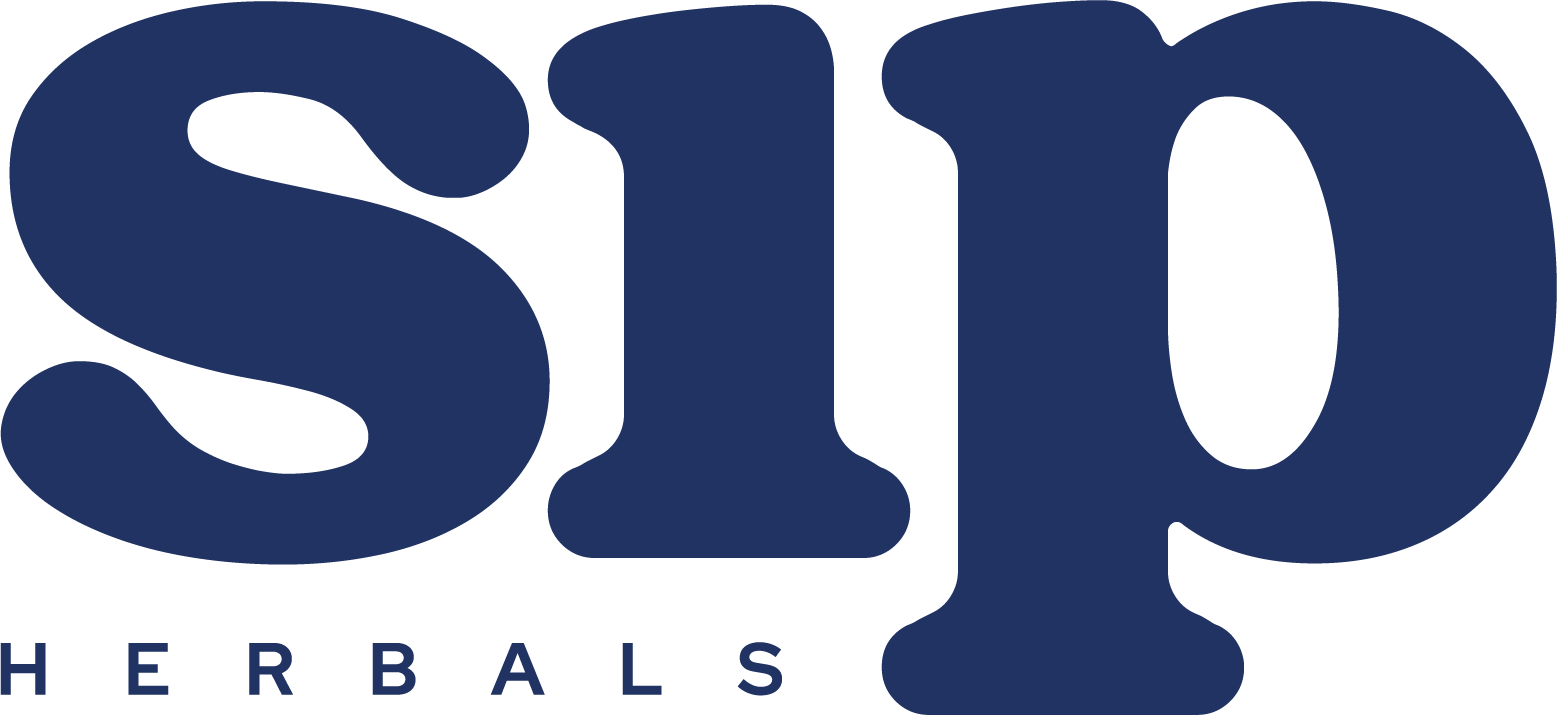
Caffeine-Free Coffee Alternatives for Pregnancy: Safe, Nourishing, Delicious
Discover pregnancy-safe ways to keep your morning ritual without caffeine or acidity. Learn which herbal blends are safe, which to avoid, and how to enjoy energy without the crash.

Quick Summary / Key Takeaways
- Most doctors recommend limiting caffeine to <200 mg per day during pregnancy.
- Coffee’s acidity can worsen reflux, nausea, and heartburn.
- Decaf still contains caffeine (2–5 mg) and acidity.
- Green tea has less caffeine than coffee but isn’t caffeine-free and may block iron absorption.
- Sip Herbals is 100% caffeine-free, low-acid, AIP-safe, and designed with pregnancy in mind.
Stats Snapshot & Comparison Table
| Beverage | Caffeine | pH | Pregnancy Safe? | Notes |
|---|---|---|---|---|
| Coffee (8 oz) | 95 mg | 4.8 | ❌ No | High caffeine + acidic |
| Decaf Coffee | 2–5 mg | 5.0 | ⚠️ Limited | Trace caffeine, still acidic |
| Green Tea | 25–30 mg | 7.0 | ⚠️ Limited | Antioxidants, but blocks iron |
| Dandelion Root Coffee | 0 mg | 6.5 | ✅ Yes | Gut-friendly, nourishing |
| Chicory Root Coffee | 0 mg | 6.3 | ✅ Yes | Prebiotic support, low-acid |
| Carob Coffee | 0 mg | 6.7 | ✅ Yes | Naturally sweet, safe in moderation |
Checklist: Safe Pregnancy Rituals Without Coffee
Simple Swaps
- Swap coffee for caffeine-free herbal blends.
- Limit total caffeine intake to under 200 mg/day.
- Use non-acidic bases (oat milk, almond milk).
- Avoid herbs flagged as unsafe in pregnancy.
Extra Tips
- Blend roasted herbs (dandelion + chicory) for a coffee-like taste.
- Add calming spices (cinnamon, ginger, vanilla).
- Track symptoms (nausea, reflux) to see what works best.
Intro
Pregnancy changes everything—sleep, appetite, energy levels—and for many women, the hardest change is saying goodbye to their morning cup of coffee. Doctors recommend limiting caffeine, but it’s not just the stimulant that’s a concern. Coffee’s acidity can make reflux and nausea worse, leaving many expectant mothers wondering: What’s safe to drink instead?
The good news: you don’t have to give up your ritual. As a Certified Master Herbalist, I’ve worked with countless women who wanted the comfort of coffee without the risks. Herbal alternatives like dandelion, chicory, and carob mimic the rich flavor of coffee, while keeping mornings safe, nourishing, and caffeine-free.
In this guide, we’ll cover why coffee is tricky during pregnancy, which herbs are safe, and how Sip Herbals compares to common substitutes like decaf coffee and green tea.
Table of Contents
FAQs Section
1. How does caffeine affect pregnancy?
Direct Answer: Caffeine crosses the placenta, and babies can’t process it like adults. Too much may increase risk of low birth weight or miscarriage.
Depth: Most guidelines (including ACOG) recommend under 200 mg/day. That’s about one small cup of coffee.
Real Results: Many women find even small amounts worsen sleep, anxiety, or reflux during pregnancy.
Takeaway: Moderation matters—caffeine is safest avoided when possible.
↑ Back to Table of Contents
2. Why does coffee’s acidity matter during pregnancy?
Direct Answer: Coffee is acidic (pH 4–5), which can aggravate pregnancy-related reflux and nausea.
Depth: Acid reflux is common in pregnancy due to hormonal changes relaxing the esophagus. Acidic drinks make it worse.
Real Results: Swapping to low-acid herbal blends often reduces heartburn.
Takeaway: Even decaf coffee can be too acidic—herbal alternatives are gentler.
↑ Back to Table of Contents
3. What do doctors recommend for caffeine limits?
Direct Answer: The American College of Obstetricians and Gynecologists advises under 200 mg/day.
Depth: That equals one 12-oz coffee, but remember tea, chocolate, and soda add up too.
Real Results: Many moms-to-be choose to eliminate caffeine entirely for peace of mind.
Takeaway: Stick under 200 mg, or go caffeine-free for the safest path.
↑ Back to Table of Contents
4. Are decaf coffee and green tea safe alternatives?
Direct Answer: Decaf coffee and green tea are lower in caffeine but not caffeine-free. Both carry risks during pregnancy.
Depth: Decaf still has 2–5 mg caffeine and acidity. Green tea has 25–30 mg caffeine and may block iron absorption.
Real Results: They may work occasionally, but aren’t ideal daily swaps.
Takeaway: Safer to use pregnancy-approved herbal alternatives.
↑ Back to Table of Contents
5. Sip Herbals vs Decaf Coffee in Pregnancy
Decaf coffee might seem like a safe compromise, but it’s not truly caffeine-free—most cups still contain 2–5 mg. That might sound small, but during pregnancy even trace caffeine can add up, especially if you’re also having tea or chocolate.
Decaf is also acidic, meaning it can worsen common pregnancy issues like reflux, heartburn, and nausea. On top of that, some decaf beans are processed using chemical solvents like methylene chloride, which raises extra concerns for expectant mothers.
Sip Herbals, on the other hand, is 100% caffeine-free, naturally low-acid, and made from roasted roots and herbs. It delivers the same comforting ritual without the hidden caffeine or processing chemicals—making it a more reliable choice during pregnancy.
Quick Comparison
| Decaf Coffee | Sip Herbals | |
|---|---|---|
| Caffeine | 2–5 mg | 0 mg |
| Acidity | High | Low |
| Processing | May use chemicals | Whole roasted herbs |
| Pregnancy Safe? | ⚠️ Limited | ✅ Yes |
| ↑ Back to Table of Contents |
6. Sip Herbals vs Green Tea in Pregnancy
Green tea is often seen as a gentler option—it has only about 25–30 mg of caffeine per cup, compared to 95 mg in regular coffee. But it’s not caffeine-free, and it can interfere with iron absorption, which is especially important during pregnancy.
While green tea offers antioxidants, those benefits don’t outweigh the risks for expectant mothers who need steady energy, digestion support, and nutrient absorption.
Sip Herbals provides a closer match to the coffee ritual, with zero caffeine and no interference with iron absorption. It supports gut health thanks to ingredients like chicory root, while remaining gentle on digestion and safe for pregnancy.
Quick Comparison
| Green Tea | Sip Herbals | |
|---|---|---|
| Caffeine | 25–30 mg | 0 mg |
| Acidity | Low | Low |
| Iron Absorption | Can inhibit | Neutral |
| Pregnancy Safe? | ⚠️ Limited | ✅ Yes |
| ↑ Back to Table of Contents |
7. Which herbal coffee alternatives are pregnancy-safe?
Direct Answer: Dandelion, chicory, and carob are safe and nourishing options in moderation.
Depth: These herbs mimic coffee’s flavor, provide minerals, and support digestion.
Real Results: Expecting mothers often find these blends reduce reflux compared to coffee or tea.
Takeaway: Choose simple, roasted roots over complex “detox” blends.
↑ Back to Table of Contents
8. Herbs to avoid during pregnancy
Direct Answer: Licorice root, pennyroyal, and strong “detox” herbs should be avoided.
Depth: These can stimulate uterine contractions or affect hormones.
Real Results: Always check herbal blends or teas for pregnancy safety.
Takeaway: Stick to blends designed for pregnancy wellness.
↑ Back to Table of Contents
9. How to get morning energy without caffeine
Direct Answer: Focus on hydration, protein-rich meals, and safe herbal blends.
Depth: Ginger or cinnamon-spiced drinks can lift energy without stimulants.
Real Results: Many moms feel more stable energy once they stop the caffeine spikes and crashes.
Takeaway: Nourishment beats stimulation during pregnancy.
↑ Back to Table of Contents
10. FAQs
Direct Answer: Should I quit caffeine cold turkey?
- Not necessarily—gradual reduction prevents withdrawal headaches.
Depth: Blend herbal + coffee or tea until your body adjusts.
Takeaway: Transition slowly, and listen to your body.
↑ Back to Table of Contents
Advanced Tips / Best Practices
- Use roasted herbal blends to preserve the ritual.
- Add warming spices (ginger, cinnamon) to ease nausea.
- Drink alternatives with food to prevent queasiness.
- Stay hydrated—dehydration worsens fatigue.
- Rotate blends so you don’t get bored.
Where to Learn More
Want more pregnancy-safe morning rituals and caffeine-free ideas? Click here.
Next Steps / Wrap-Up
Pregnancy doesn’t have to mean losing your morning ritual. While decaf coffee and green tea seem like safer choices, they still bring caffeine and other drawbacks. Sip Herbals offers a true alternative—rich, flavorful, caffeine-free, and pregnancy-safe. With the right blends, you can keep your mornings comforting and nourishing. Click here.
Author Bio
Written by Orleatha Smith, Certified Master Herbalist
Orleatha Smith is a Certified Master Herbalist and co-founder of Sip Herbals, a revolutionary coffee alternative designed to deliver sustainable energy without the crash. With a background in biology and an advanced degree in education, Orleatha has spent more than a decade in the wellness community, helping people explore natural approaches to health. Her expertise has been featured on Shark Tank, in First For Women Magazine, The Los Angeles Times, WebMD, and on numerous podcasts and television programs.
Disclaimer
This article is for educational purposes only and does not replace professional medical advice. Always consult with your healthcare provider before making dietary changes, especially if you are pregnant, nursing, or managing a chronic condition.




